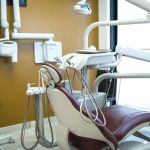Can a Dental Therapist Become a Dentist? A Career Path Exploration
When I first started working as a dental therapist, I was thrilled to be part of the dental field. I enjoyed providing preventive care and helping patients maintain good oral health. However, over time, I found myself wondering about the next steps in my career. Could I transition from a dental therapist to a dentist? It turns out that the answer is yes! With the right education, dedication, and planning, a dental therapist can indeed become a dentist. Let me walk you through the process and share some insights into how a dental therapist can transition into a full-fledged dentist.
1. Understanding the Role of a Dental Therapist
Before diving into the path from dental therapist to dentist, it’s important to understand what a dental therapist does. As a dental therapist, I was primarily focused on preventive care, including cleanings, sealants, and fluoride treatments. Dental therapists also assist with restorative procedures such as fillings, and in some cases, they may even perform extractions or provide treatment under the supervision of a dentist, depending on state regulations.
The role of a dental therapist is crucial in providing accessible and efficient care, especially in underserved areas where there may be a shortage of dentists. Dental therapists work closely with dentists to ensure that patients receive comprehensive care. While this role offers significant responsibility and satisfaction, I found myself considering whether I wanted to expand my knowledge and capabilities by pursuing a career as a full-fledged dentist. Understanding that this was a possibility motivated me to look into the steps required to transition into dentistry.
2. The Education Requirements for Becoming a Dentist
The biggest question I had when considering a transition from dental therapy to dentistry was the educational path. Unlike dental therapy programs, which typically require a two- to three-year program, becoming a dentist requires attending dental school for four years after completing a bachelor's degree. Dental school programs are intensive, and they cover everything from advanced anatomy to dental surgery, which was a significant leap from my work as a dental therapist.
While dental therapists and dentists share some similarities in the basic dental knowledge required, dental school provides a deeper and more comprehensive education. I discovered that while my background as a dental therapist could provide me with a solid foundation, I would still need to complete dental school, which includes both classroom learning and hands-on clinical training. Additionally, after completing dental school, aspiring dentists must pass licensing exams to practice dentistry.
3. Can a Dental Therapist Skip Some Steps in Dental School?
As I explored the possibility of transitioning into dentistry, one of my main questions was whether my experience as a dental therapist could shorten the process. Unfortunately, dental therapy and dentistry are considered distinct fields, so dental therapists cannot simply bypass dental school. However, I learned that some dental schools offer advanced standing or “bridge” programs for dental therapists who wish to become dentists. These programs may allow dental therapists to receive credit for some coursework or clinical experience that overlaps between the two roles.
For example, my experience working with patients and assisting in various dental procedures gave me practical knowledge that could potentially reduce the time spent in certain areas of dental school. However, I would still need to complete the core requirements and clinical rotations to ensure I was fully prepared for the responsibilities of a dentist.
4. Licensing and Certification Requirements for Dentists
After completing dental school, becoming a licensed dentist requires passing several examinations, including the National Board Dental Examination (NBDE) and a clinical exam specific to the state in which you plan to practice. As I looked into this process, I realized that while dental therapists already have experience in patient care, transitioning to a dentist requires demonstrating advanced skills in various procedures and the ability to handle complex cases.
For example, as a dentist, I would be responsible for performing intricate restorative procedures, root canals, and oral surgeries that are outside the scope of a dental therapist's training. This level of expertise is why licensing exams are necessary, ensuring that all dentists have the skills required to provide comprehensive care. It’s a rigorous process, but it’s essential to ensure patient safety and quality care.
5. Time and Financial Investment in Becoming a Dentist
While I was eager to pursue my dream of becoming a dentist, I also had to consider the time and financial investment required. Dental school typically lasts four years, and tuition can be quite costly, often reaching $40,000 to $100,000 per year, depending on the school. As a dental therapist, I had already spent years in education, so I had to weigh whether the financial and time commitment was worth the long-term benefits of becoming a dentist.
For many dental therapists, the cost of dental school can be daunting. However, scholarships, loans, and sometimes employer-sponsored programs are available to help cover tuition costs. Some dental schools even offer financial aid packages for students transitioning from dental therapy to dentistry. It’s important to research and plan for these expenses before making the leap to dental school.
6. The Job Market for Dentists vs. Dental Therapists
Another consideration when deciding whether to transition from a dental therapist to a dentist is the job market. As a dental therapist, I was fortunate to be part of a growing field, especially in areas with limited access to dental care. However, I found that the job market for dentists tends to be more diverse and offers greater earning potential and job stability. Dentists have the opportunity to open their own practices, work in specialized areas like orthodontics or periodontics, or take on roles in teaching or research.
The flexibility in career options and the higher earning potential were factors that encouraged me to pursue dentistry. In addition, dentists are often able to treat more complex cases, which adds a layer of professional satisfaction. I knew that becoming a dentist would allow me to expand my expertise and provide more comprehensive care to my patients.
7. Personal Fulfillment and Career Growth
While being a dental therapist offered me many opportunities to help patients and improve oral health, I found that becoming a dentist would allow me to take my career to the next level. I envisioned having a greater impact on patient care, working on a wider range of procedures, and expanding my scope of practice. Dentistry offers a unique opportunity for personal fulfillment, especially for those passionate about oral health and patient care.
In my journey, I realized that transitioning from a dental therapist to a dentist is not just about advancing in one’s career but also about gaining a deeper level of expertise and broadening the impact you can have on your community's oral health. For dental therapists considering this path, it’s a long but rewarding journey filled with opportunities for growth and development.







 Elmwood Park Cosmetic Dentistry5.0 (1 review)
Elmwood Park Cosmetic Dentistry5.0 (1 review) Westborough Family Dental5.0 (71 review)
Westborough Family Dental5.0 (71 review) SmileLine Dental: Dr. Geeta Choudhary, DDS4.0 (87 review)
SmileLine Dental: Dr. Geeta Choudhary, DDS4.0 (87 review) Newtown Dentistry for Kids4.0 (544 review)
Newtown Dentistry for Kids4.0 (544 review) Sahara Dental Center part Brident Dental & Orthodontics4.0 (788 review)
Sahara Dental Center part Brident Dental & Orthodontics4.0 (788 review) Two Front Teeth Family Dentistry - Dr. Elise Pham5.0 (41 review)
Two Front Teeth Family Dentistry - Dr. Elise Pham5.0 (41 review) The Importance of Oral Health Education During Pregnancy for a Healthy Pregnancy
The Importance of Oral Health Education During Pregnancy for a Healthy Pregnancy Best Tips for Brushing Your Teeth Properly for Healthy Gums: Essential Techniques for Oral Health
Best Tips for Brushing Your Teeth Properly for Healthy Gums: Essential Techniques for Oral Health Why Skipping Dental Checkups Can Lead to Bigger Oral Health Problems
Why Skipping Dental Checkups Can Lead to Bigger Oral Health Problems Advantages of Porcelain Dental Restorations
Advantages of Porcelain Dental Restorations How Can Diabetes Cause Tooth and Gum Problems? Preventing and Managing Oral Health Issues
How Can Diabetes Cause Tooth and Gum Problems? Preventing and Managing Oral Health Issues Healthy Habits for Promoting Good Oral Health and Hygiene: Tips for a Healthy Smile
Healthy Habits for Promoting Good Oral Health and Hygiene: Tips for a Healthy Smile